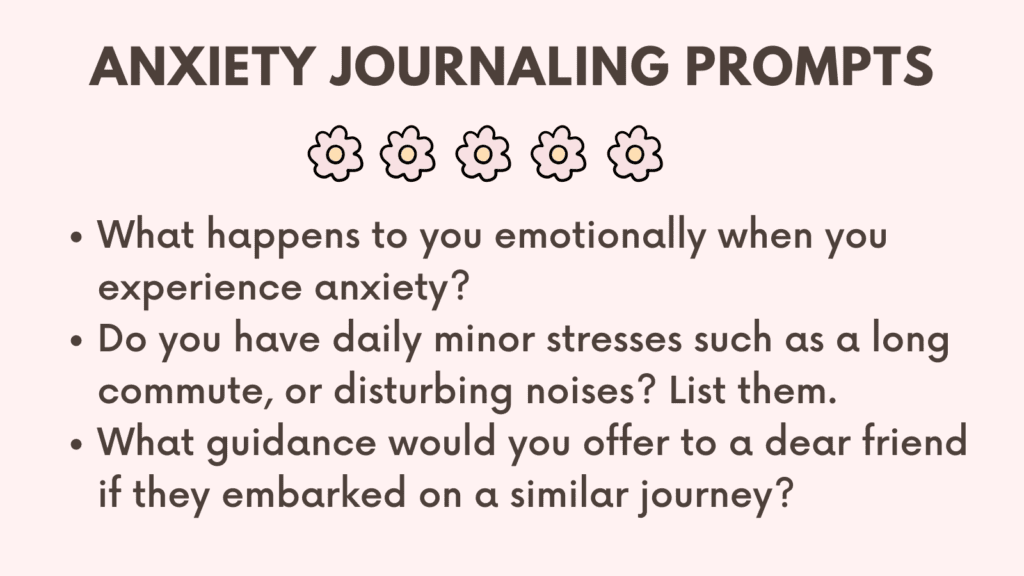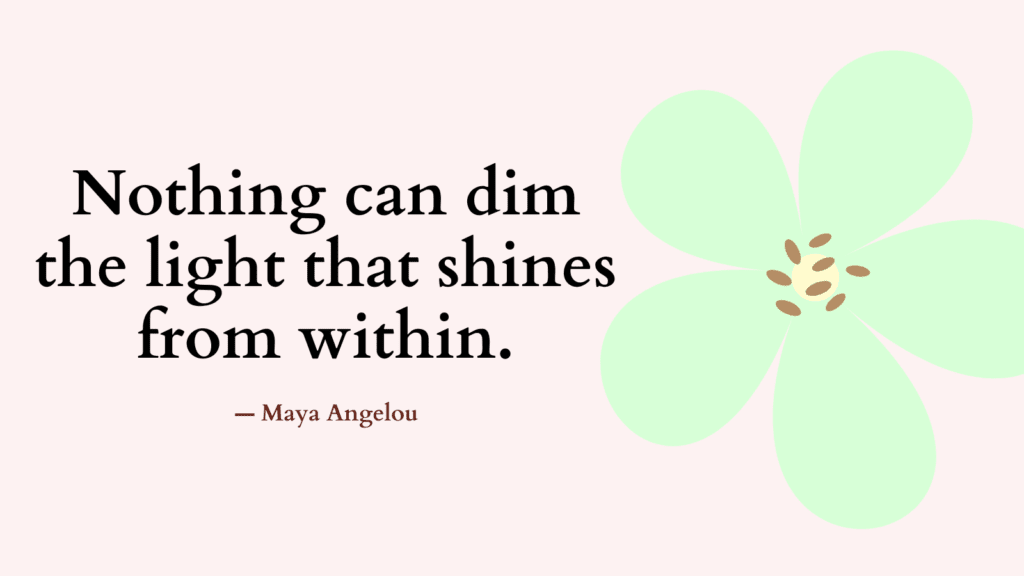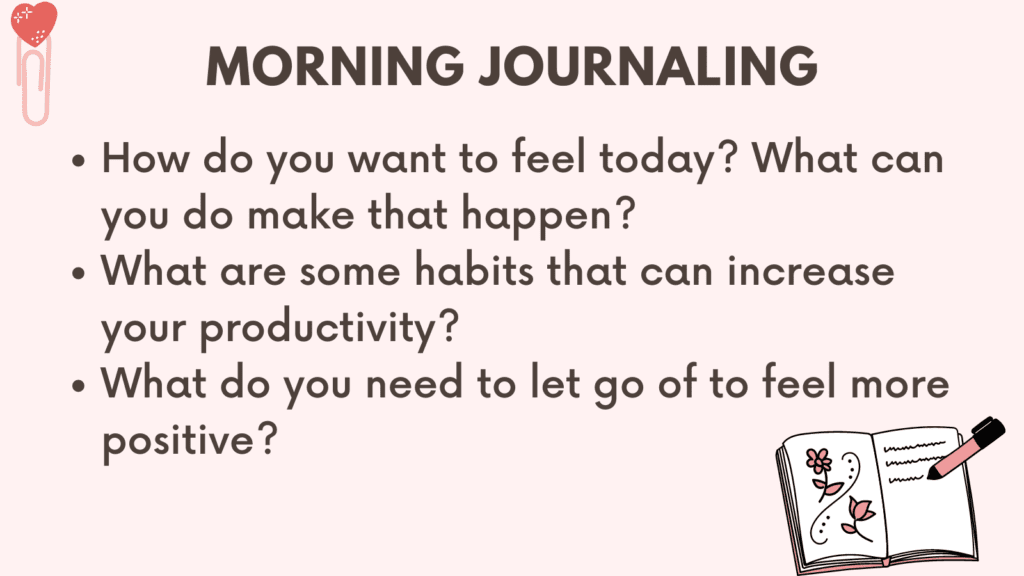This post contains anxiety journaling prompts to help you manage your difficult emotions.
What Are Journaling Prompts?
Journal prompts are a tool for self-reflection and self-discovery.
They are suggestive prompts designed with the intention of sparking introspection.
This is a great way to relieve emotional distress and connect more deeply with yourself.
Related: Top 10 Practical CBT Exercises For Generalized Anxiety Disorder Relief
The Benefits of Journaling
A growing number of studies show that journaling can be a great way to reduce mental stress and anxiety.
Journaling can help you:
- Identify what triggers your anxiety
- Figure out healthier ways to deal with those triggers
- Reduce anxious thoughts and feelings
- Challenge negative thoughts and self-talk
- Face your fears
- Boost your mood
Anxiety Journaling Prompts
1. What happens to you physically when you experience anxiety? (e.g. muscle tension, tightness in your chest or abdomen, racing heart, sweating, etc.)
2. What happens to you emotionally when you experience anxiety?
3. What do you find yourself doing (actions) or wanting to do when you experience anxiety? (e.g. cutting a meeting short to avoid saying something awkward or avoiding attending the meeting altogether, spending hours analyzing and reanalyzing an event in an effort to feel less anxious, etc.)
4. In what ways do your anxiety, avoidance, and safety behaviors interfere with your life, including work, school, relationships health, hobbies and leisure activities, or other areas?
5. In the past year or so, have you lost anyone you care about through death, divorce, or prolonged separation?
6. Did you experience financial difficulty recently? Or have you made any major purchases such as a new house or car?
7. Have you made any major changes in your life? (e.g. retirement, a new place, a new job, or a new relationship)
Related: What Is the 333 Rule for Anxiety? (& Other Anxiety Coping Strategies)
8. Are there problems at work? (e.g. new responsibilities, longer hours, or poor management)
9. Are you having arguments or conflicts with anyone?
10. Do you have daily minor stresses such as a long commute, or disturbing noises? List them.
11. What skills, knowledge, or experiences do you already have that could help you successfully manage anxiety?
12. What is one adjustment you would like to make to your morning routine that will help reduce your anxiety?
13. What is one adjustment you would like to make to your night routine that will help reduce your anxiety?
14. What would it mean to you if you were to successfully manage anxiety?
Related: How To Stop Self-Critical Thoughts Using These Top 10 Techniques
15. If you could wave a magic wand and your anxiety was gone…what will you do differently?
16. What guidance would you offer to a dear friend if they embarked on a similar journey?
17. Describe a time when you felt fulfilled. What were you doing?
18. Make a list of 5 affirmations to repeat to yourself when your anxiety is triggered.
19. What are some self-care ideas for when you feel anxious?
20. How can you offer yourself a bit more support and compassion?
FREE Anxiety Worksheets PDF
Related: How To Overcome Agoraphobia Without Medication? 9-Step Guide To Control Panic Attack In Public
Best Journaling Apps
To journal, you can use physical notebook or papers or an audio journal where you speak into a recording device or you can also use a digital journal.
The following are some of the best journaling apps:
- Day One for Mac and iOS users
- Daylio for iOS & Android users
- Diarium for Windows, macOS, iOS & Android users
- Grid Diary for macOS, iOS & Android users
- Momento for social media power users
- Penzu for Windows, macOS, iOS & Android users
Related: 30 Day Social Anxiety Challenge That Will Help You Feel More Confident

How to Use Anxiety Journaling Prompts?
Here are some tips on how to use anxiety journaling prompts:
1. Set aside time: Schedule some quiet time for yourself where you can focus on your writing without any distractions or interruptions.
2. Choose a prompt: Pick a prompt that resonates with you or feels most relevant to your current situation.
3. Allow free-flow writing: Write whatever comes to mind without censoring or editing your thoughts. Let your pen flow freely and don’t worry about grammar or spelling.
4. Be honest: Don’t be afraid to express your true feelings, even if they seem irrational or uncomfortable.
5. Reflect: After you’ve finished writing, take a few moments to reflect on what you wrote. Identify any patterns or triggers that might be contributing to your anxiety.
6. Develop a plan: Use your journaling as a tool to develop coping mechanisms and strategies to manage your anxiety. Write down any solutions or action steps that come to mind.
7. Repeat the process: Incorporate journaling into your daily or weekly routine to help manage your anxiety over the long term.
Related: Best 10 Self Discovery Books
Conclusion
Anxiety journaling prompts are a useful tool to help you explore and manage your anxious thoughts and feelings.
Remember, anxiety journaling is a personal journey, and there is no right or wrong way to do it.
The goal is to help you explore your thoughts and feelings in a safe and supportive environment.
References
- What’s All This About Journaling? – The New York Times (nytimes.com)
- Journaling for Mental Health – Health Encyclopedia – University of Rochester Medical Center
- Benefits of Journaling for Mental Health (5 Science-Based Benefits of Journaling for Anxiety and Depression)) | Holstee
- The Mental Health Benefits of Journaling | Psych Central
- 83 Benefits of Journaling for Depression, Anxiety, and Stress (positivepsychology.com)



